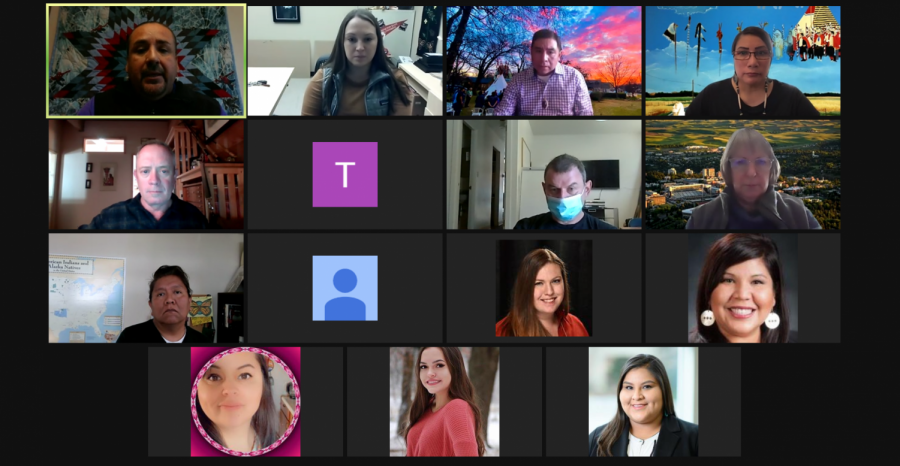Maintaining Native identity vital to future of tribal sovereignty, speaker says
Being Native American is not always seen as an identity even if it is, speaker says
Warren Queton, affiliate of the Cherokee Nation, said Native Americans need to know their ancestral language and their ceremonial ways.
November 3, 2020
A University of Oklahoma tribal liaison officer and program director discussed how Native American heritage should be seen as an identity at an event hosted by WSU to celebrate Native American Heritage Month.
Warren Queton is an affiliate of the Cherokee Nation and works with the University of Oklahoma staff and alumni to improve Native American inclusivity. He is also a Native combat veteran and active member of the Army National Guard, said Steven Martin, WSU director of Native Student Services.
When Queton joined the military, he said he realized there were few Native American officers. So the military wanted him to be the Equal Opportunity Officer.
Queton said he wanted to be in the convoy, not filling out paperwork for equal opportunity initiatives.
At one point, the military wanted to hold a Native American demonstration, complete with singing, dancing and Native formal wear, for Native American Heritage Month. They did not want an actual representation of who Native people are today, he said.
“People often only wanted to see the romantic side of Native American culture,” he said. “I never really took the time to step back and discern what we were doing and trying to make people aware that we are a part of the community.”
Queton said being Native American is an identity.
“We need to focus more on how we are going to maintain that identity for the future of tribal sovereignty,” he said.
Tribal sovereignty has three foundations: government, land and ethnographic history, he said.
Queton said the tribe must have a governmental structure, such as a clan-based government or a chief.
Tribes must also retain their land, he said. Some tribes still retain their land and fight every day to restore and keep possession of it.
Anthropologists from the 1800s to the early 1900s documented Native American history and language as well as collected artifacts, he said. They thought Native Americans were going to disappear from the U.S.
Native Americans need to be able to speak their ancestral language and know the ceremonial ways, Queton said.
“It’s really on my mind all the time on how we are going to revive our language,” he said.
The Native American community needs to reevaluate how culture is seen, he said. Culture is not stagnant, and if it stays stagnant, there is a risk of great loss as the elders in the community die.










